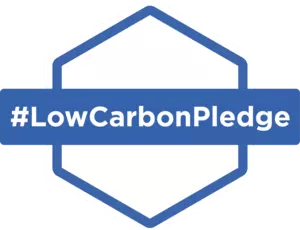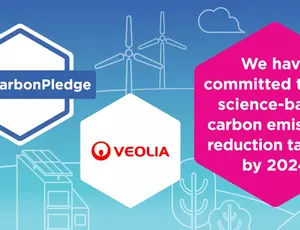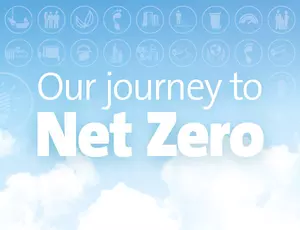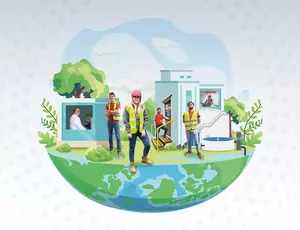Case study developed for the BITC Ireland Low Carbon Pledge Annual Report 2021, produced by PWC.
Developing a circular approach to your business will be key in driving your transition to decarbonising your operations across your supply chain. Veolia are leaders in the circular revolution and can show the impact that this has had to date and what to expect going forward.
For all companies, across all sectors, business-as-usual is not enough to achieve the ambitious climate targets that have been set. Transformational change will be required in how we operate, and a circular approach will be key towards this transformation.
Veolia’s stated purpose, which is centred around “contributing to human progress through ecological transformation, via the alignment of the UN Sustainable Development Goals (SDGs), in order to achieve a better and more sustainable future for all”, is the driving force behind their decision to set science-based targets (SBTs). Veolia has a significant focus on circularity, which they believe is key in driving companies’ transition to decarbonising their operations across their supply chain. Veolia formally set SBTs at a global level in 2019 and committed to reduce absolute scope 1 and 2 emissions by 22% by 2034 from a 2018 base year. As a global organisation this decision was made at a group level.
In order to ascertain what would be appropriate targets a large amount of modelling was completed at sample sites. Scenario planning which took account of regional specifics was a key element of setting appropriate targets. Veolia Ireland will set its own pathway to achieving the agreed regional targets and will continuously keep the Group appraised via comprehensive performance and KPI reporting, which allows for an aggregate global perspective on progress.
When considering the challenges that companies should take into account when looking at SBTs, Veolia highlights the importance of ensuring a consistent approach to interpretation of boundaries between different scope types and companies within a value chain. As Veolia operates many facilities on behalf of its clients, the organisation sees first-hand the criticality of parties holding a shared clarity on ownership of reporting each class of emissions. It can be challenging to determine where to draw the line of who accounts and reports for which emissions, and ensuring this is done consistently across geographies and international organisation structures.
For its own part, Veolia is working to validate where those boundaries lie with its clients and to ensure alignment across the two sides of reporting. Ensuring consistent interpretation of the SBTs methodologies is another key factor highlighted by Veolia, both internally amongst its own teams and externally across multiple clients and sectors. To address this, Veolia puts emphasis on strong collaboration through the value chain, as well as on training and education programmes to maximise consistent application. Robust reporting also assists in the identification of potential areas of misalignment of interpretation.
Veolia has found that there is very good alignment between focussing on circular solutions, rather than the traditional ‘linear’ approach, and reducing emissions in line with SBTs. The following are a number of examples which illustrate the power circulatory.
Thermal hydrolysis
One of the tenets of circularity for Veolia is minimising waste; reusing and using things more efficiently. Through a co-development with Irish Water, they created a financial and environmental case for a non-traditional approach to sludge handling and processing. The original approach involved burning natural gas for sludge drying which had a material carbon footprint. Working in collaboration with their client, Veolia proposed to replace the sludge dryer with an advanced anaerobic digestion process using thermal hydrolysis to precondition the sludge. The sludge is now processed in the thermal hydrolysis plant before the anaerobic digestion and converted to biogas. The drying site has been decommissioned and is no longer in use. Thanks to the new process, natural gas consumption reduced from 35 GWh per annum to zero and saved 8,500 tonnes CO2 per annum. In addition to the environmental benefits of the project, the sludge produced from the thermal hydrolysis process has a high phosphorus content that is readily available and is much easier to handle, transport and spread than traditional wastewater sludges and therefore can be used as a sustainable nutrient-rich fertiliser and soil conditioner in the agriculture sector. This engagement with Irish Water created a greener and more cost-effective solution to an underperforming process delivering benefits to both the asset owner and operator. While the positive financial business case was important, so too were the additional sustainability benefits.
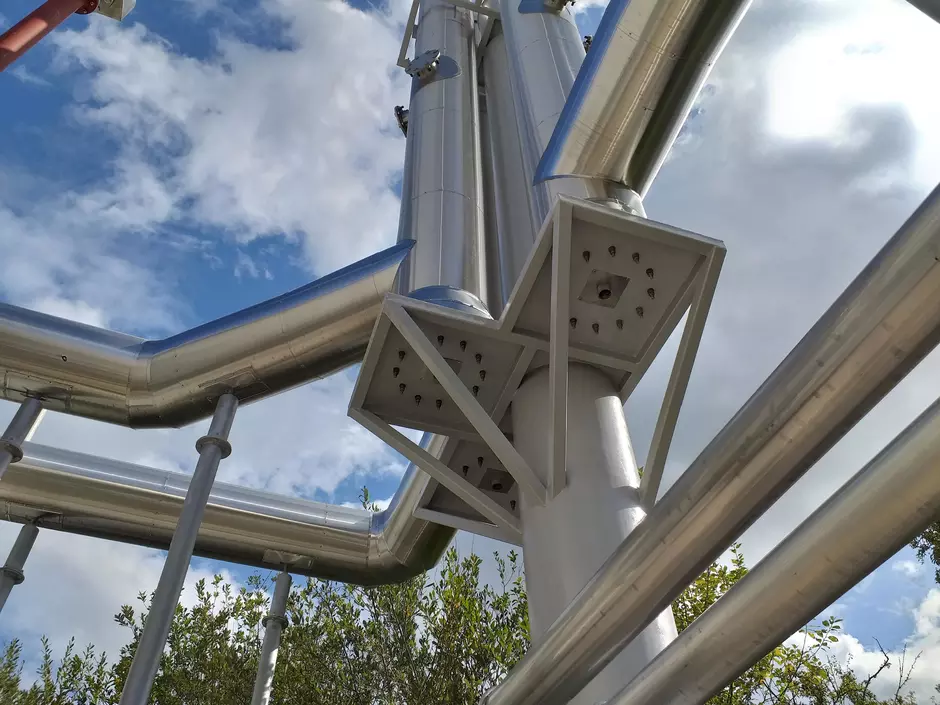
Carbon energy funds
A key component of Veolia’s business is providing services and products in an energy efficient manner. Veolia was awarded the first Carbon Energy Fund Ireland (CEFI) contract for The Mater Misericordiae University Hospital and a second for St. James’ Hospital. These solutions can provide attractive funding options in combination with longer time horizon planning, which minimises the lifetime carbon footprint by considering the operational footprint from the outset. The contracts are typically 15 or 20 years, with an ongoing partnership being developed. Both hospital projects will achieve a 30% reduction in their scope 1 and 2 emissions through their heat and electricity savings. The contracts are a triparty agreement between Veolia (the contractor), the hospital (the client), and the capital provider (specialist energy-efficiency funds). The project includes the replacement of inefficient boilers, lighting, heating system pumps and air conditioning units. The investment also includes building fabric upgrades to reduce energy losses and new assets for efficient onsite power generation through combined heat and power (CHP) solutions. This innovative investment model is underpinned with continuous monitoring, KPIs on all the installed assets and guaranteed financial savings.
Hazardous liquid waste
Some industries produce a large volume of hazardous liquid waste which can be both complex to dispose of and responsible for significant carbon emissions through their production and distribution. In Ireland this is a significant issue for the pharmaceutical and hi-tech manufacturing industries. Veolia, working with a large technology manufacturer and many of its industrial clients, has designed and implemented a circular solution which results in yearly recovery of 13,500 tonnes of solvent waste. These merchant recovery solutions convert one class of waste solvent back to its original state to be reused within industry and another class of solvent (11,000 tonnes) to a secondary liquid fuel which is used as a replacement for fossil fuels in industrial production.
Once again early engagement is key to optimising the level of recovery possible. This can involve engaging in segregation strategies for their hazardous liquid waste, or reviewing the material chemistry and value at the process design stage. Historically, companies engaged Veolia’s services after their processes had already been defined, which restricts the level of recycling possible. A focus on upfront design largely driven by engagement with clients on this topic, combined with a greater client emphasis on measurement and reporting, has seen Veolia getting involved much earlier in the design process delivering much better and more circular outcomes.


